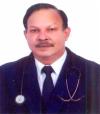Brief Answer:
Take LOW calorie, LOW fat, HIGH Protein diet
Detailed Answer:
Hi Lady,
Thanks for your query.
Firstly, PLEASE RELAX! There's nothing serious. NO NEED TO WORRY.
1.
Fatty liver and high Lipid levels are due to
uncontrolled diabetes. Lipid levels will come down, while a gradual reduction in fatty liver will occur, ONCE your diabetes is under ideal control and well stabilized. As such, A1c of 6.7 is not very high and indicates satisfactory control of diabetes. Aim should be to bring it down ideally, to 6 or less.
2. Your diarrhea is apparently due to Metformin. Apprise your doctor about diarrhea and he will switch to some other equally effective drug, such as
Glimepiride. As long as you have diarrhea, take PLENTY of fluids to avoid
dehydration.
3. The function of
gall bladder is to form, store and concentrate bile. Bile facilitates digestion of fat. Hence, following gall-bladder removal, digestion of fat is impaired. Just take LOW fat diet (as far as possible, avoid meat, poultry products, butter, cheese, whole milk, eggs, confectionary, junk food, fast food, burgers, pizzas, etc.)
4. STOP alcohol, smoking, aerated/carbonated drinks/beverages (if applicable to you).
5. Till you meet a dietician, simply cut down by 50% on sugar and sugar-containing products, rice, fruits, sweets, confectionary, ice-creams etc..
6. Take six small meals in a day (snacks between breakfast and lunch; with evening tea; and at bedtime), in addition to breakfast, lunch and dinner.
7. In a nutshell, take LOW calorie, LOW
Carbohydrate, LOW fat and HIGH protein diet. Take a plateful of green salads (raw) 15 minutes before lunch and dinner.
8. Please DO NOT STOP CARBOHYDRATES COMPLETELY. You need to take at least 100gms of carbs daily, which are the ready fuel required for daily routine chores.
9. Control of diabetes further requires
* regular, daily physical exercises (gym, jogging, brisk walks, cycling,
aerobic exercises, swimming etc.) for at least 45 mins/day;
* Reduction of body weight (if
overweight) to ideal level (BMI of less than
25);
* Strict control of blood pressure (BP should be around 120/80). Your
doctor will modify your BP drugs, so as to lower the BP to desirable levels.
* Regular check up of Blood sugar levels.
May I assure you that strict adherence to diet, weight reduction,regular exercises and, regular/timely medication, will bring your blood sugar, blood pressure, high lipids and fatty liver under control.
Hope I have addressed to your concerns to your complete satisfaction and you find my response helpful and informative. I will be happy to answer further queries, if any.
Fond regards and have a nice day,
Col (Dr.) Rakesh Karanwal

 Sat, 11 Jan 2014
Answered on
Sat, 11 Jan 2014
Answered on
 Fri, 31 Jan 2014
Last reviewed on
Fri, 31 Jan 2014
Last reviewed on





